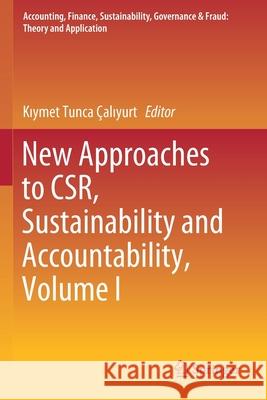New Approaches to Csr, Sustainability and Accountability, Volume I » książka
topmenu
New Approaches to Csr, Sustainability and Accountability, Volume I
ISBN-13: 9789813295902 / Angielski / Miękka / 2020 / 271 str.
New Approaches to Csr, Sustainability and Accountability, Volume I
ISBN-13: 9789813295902 / Angielski / Miękka / 2020 / 271 str.
cena 401,58
(netto: 382,46 VAT: 5%)
Najniższa cena z 30 dni: 385,52
(netto: 382,46 VAT: 5%)
Najniższa cena z 30 dni: 385,52
Termin realizacji zamówienia:
ok. 16-18 dni roboczych.
ok. 16-18 dni roboczych.
Darmowa dostawa!
This book provides a platform for discussing the challenges that organizations face in order to implement sustainability, ethics, and effective corporate governance, all of which are important elements of “standing out” from other companies. Examining the background of the New European Consensus on development with the new guiding motto ‘Our World, Our Dignity, Our Future’, the authors explore how this new legislation on sustainability issues around the world is forcing companies to deal directly with sustainability issues.
The 2030 Agenda for Sustainable Development (2030 Agenda), adopted by the United Nations in September 2015, is the international community’s response to global challenges and trends in connection with sustainable development. With the Sustainable Development Goals (SDGs) at its core, the 2030 Agenda is a transformative political framework designed to eradicate poverty and achieve sustainable development globally. It balances the economic, social and environmental dimensions of sustainable development, including the key issues of governance and peaceful and inclusive societies, and recognizes the essential interlinkages between its goals and targets, i.e., that they must be implemented as a whole and not selectively. The respective chapters in this volume raise a number of questions regarding companies’ ability to implement sustainability, ethics, and effective corporate governance. Simultaneously, they explore how organizations must adapt to sustainability-related developments.











